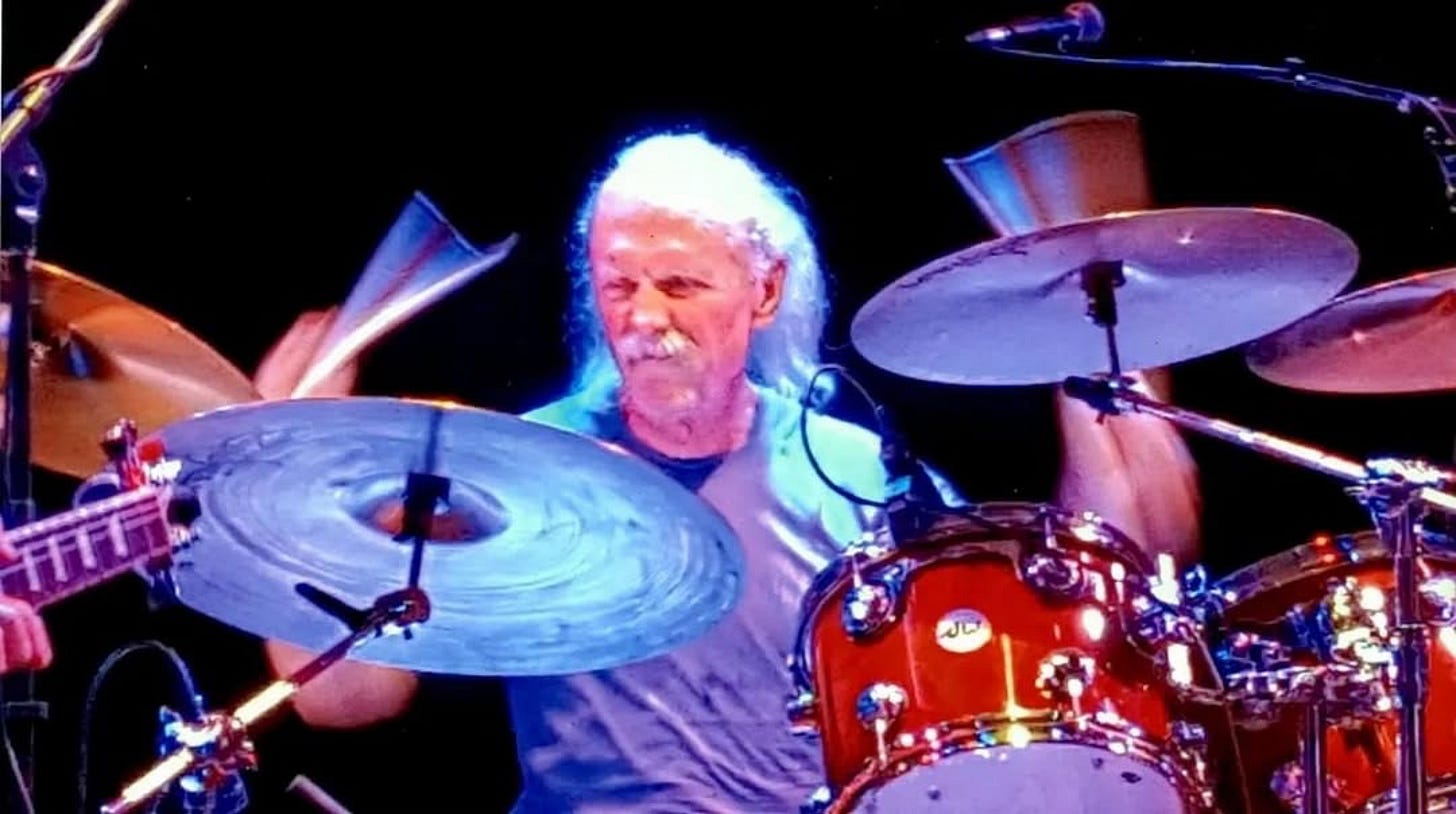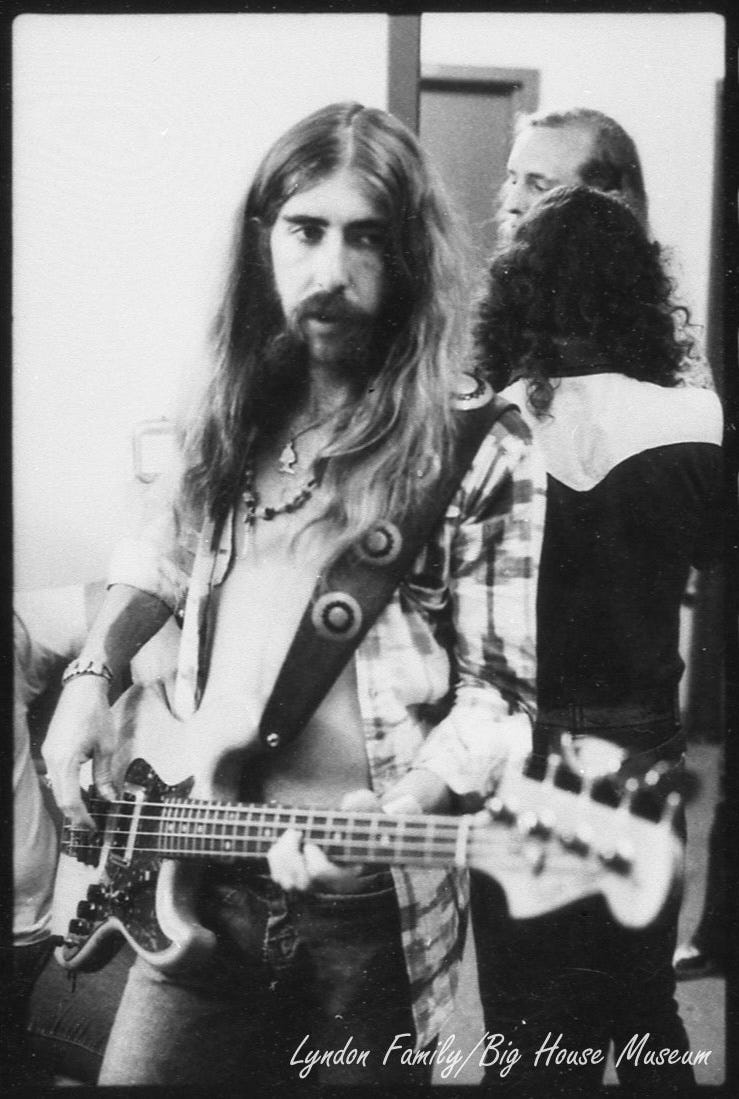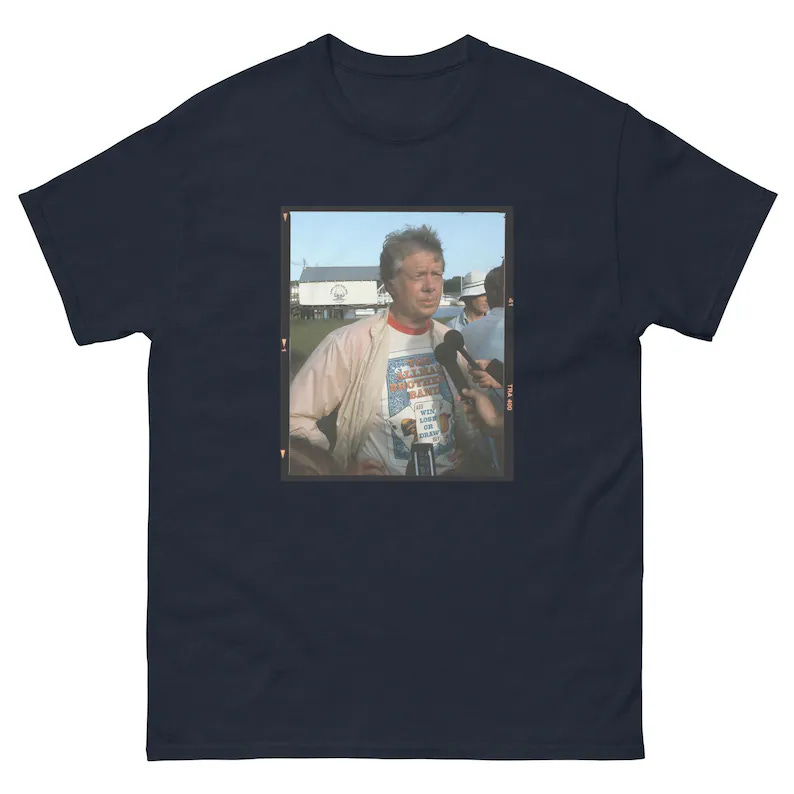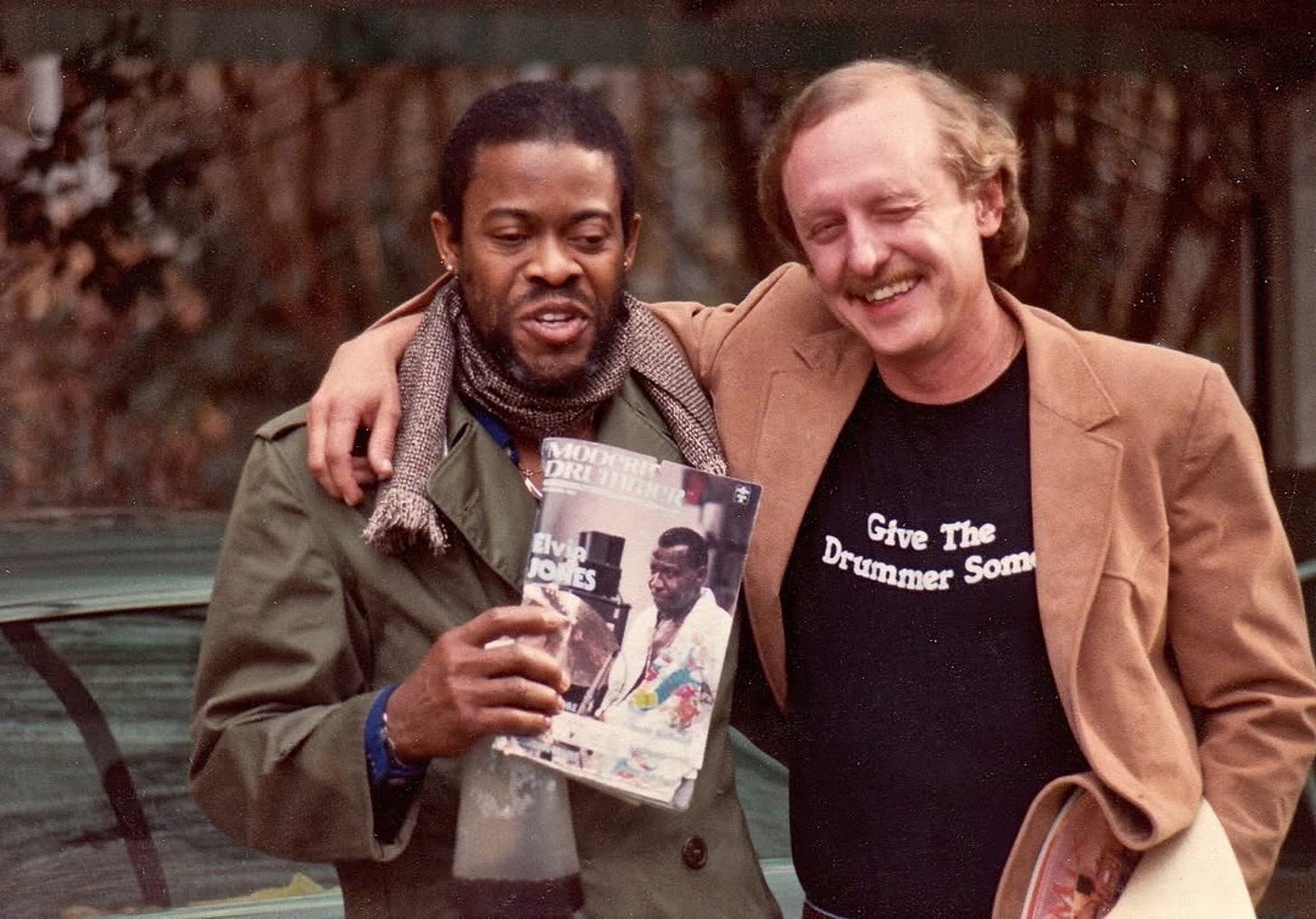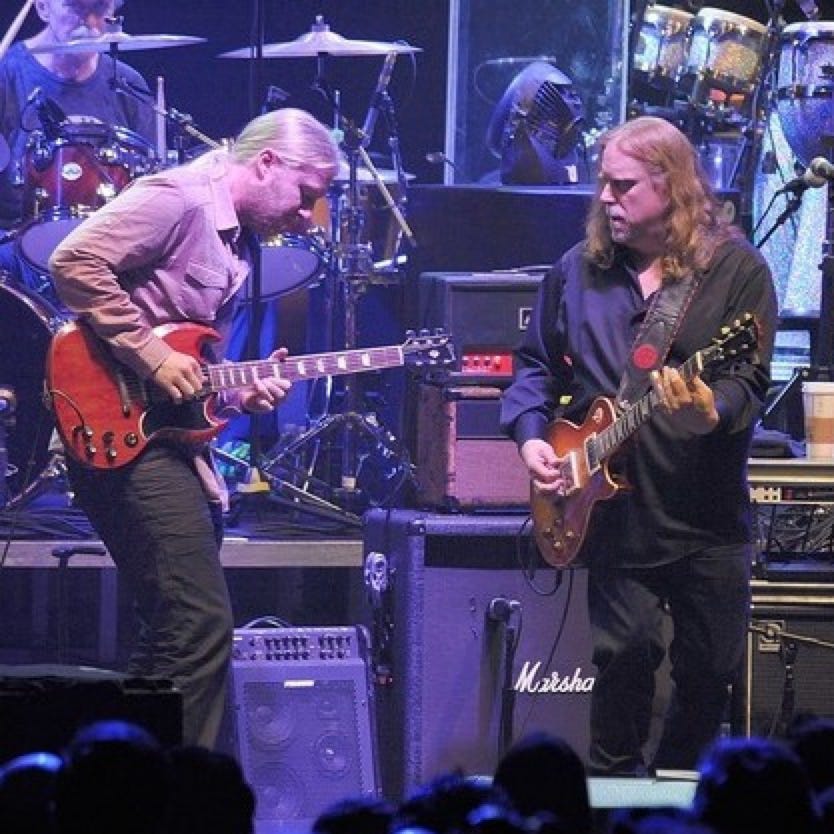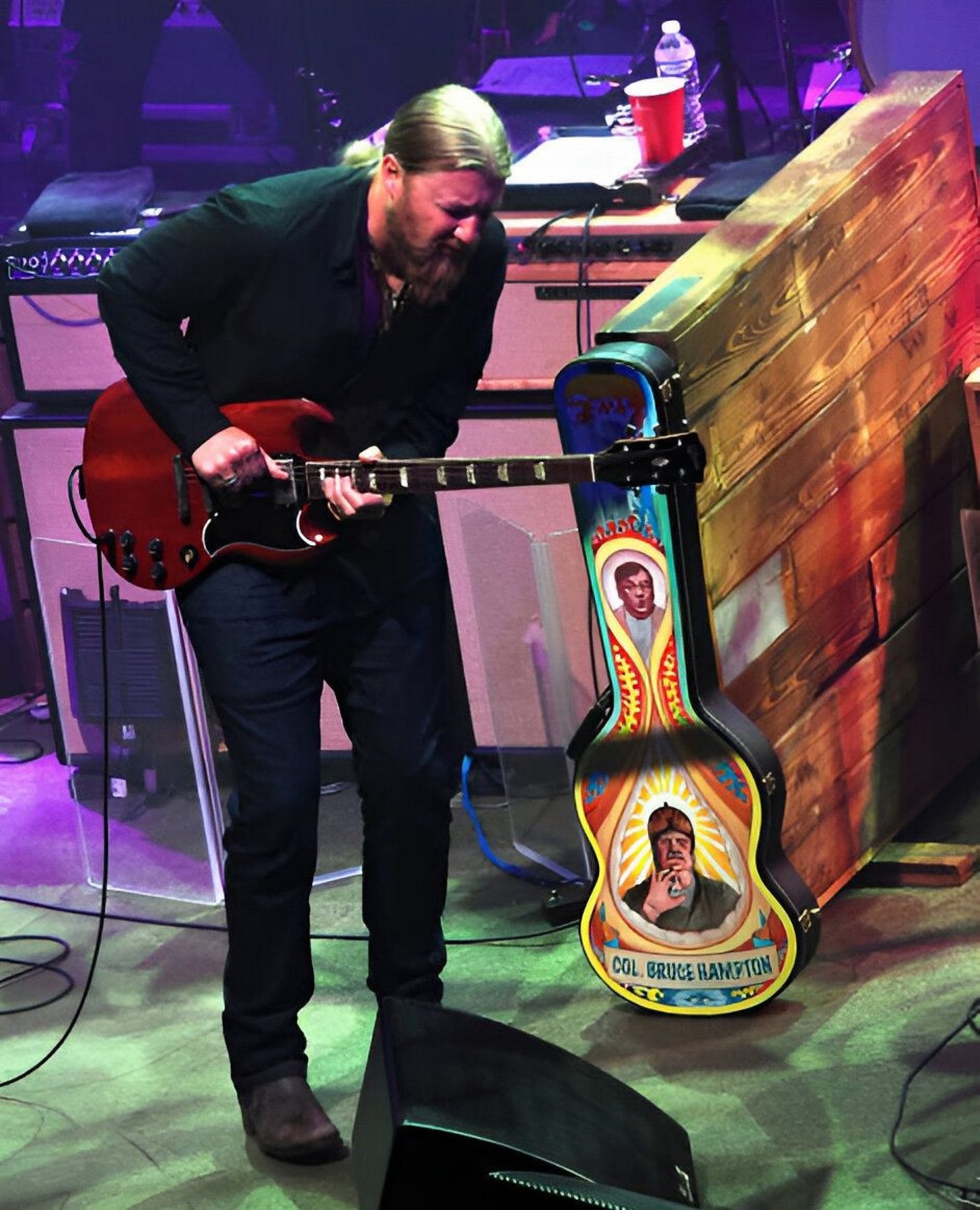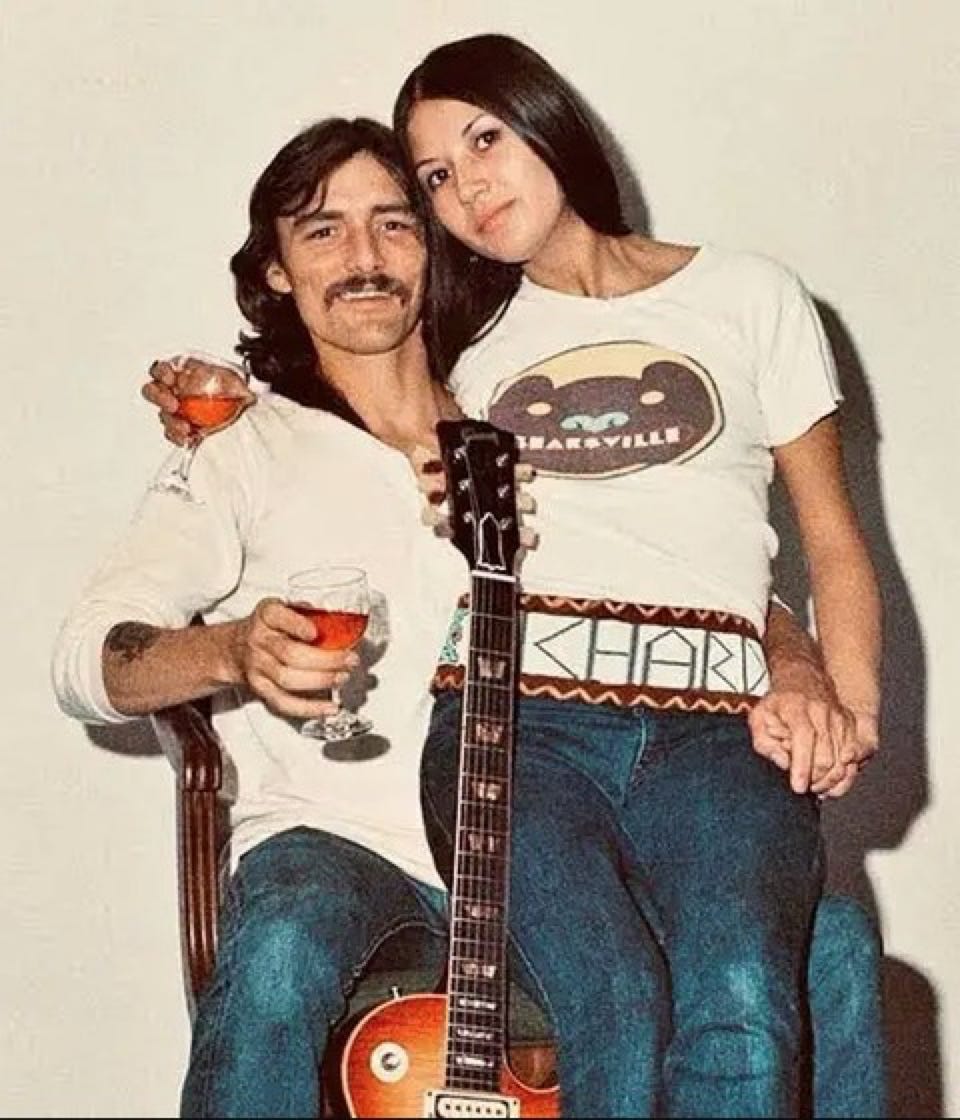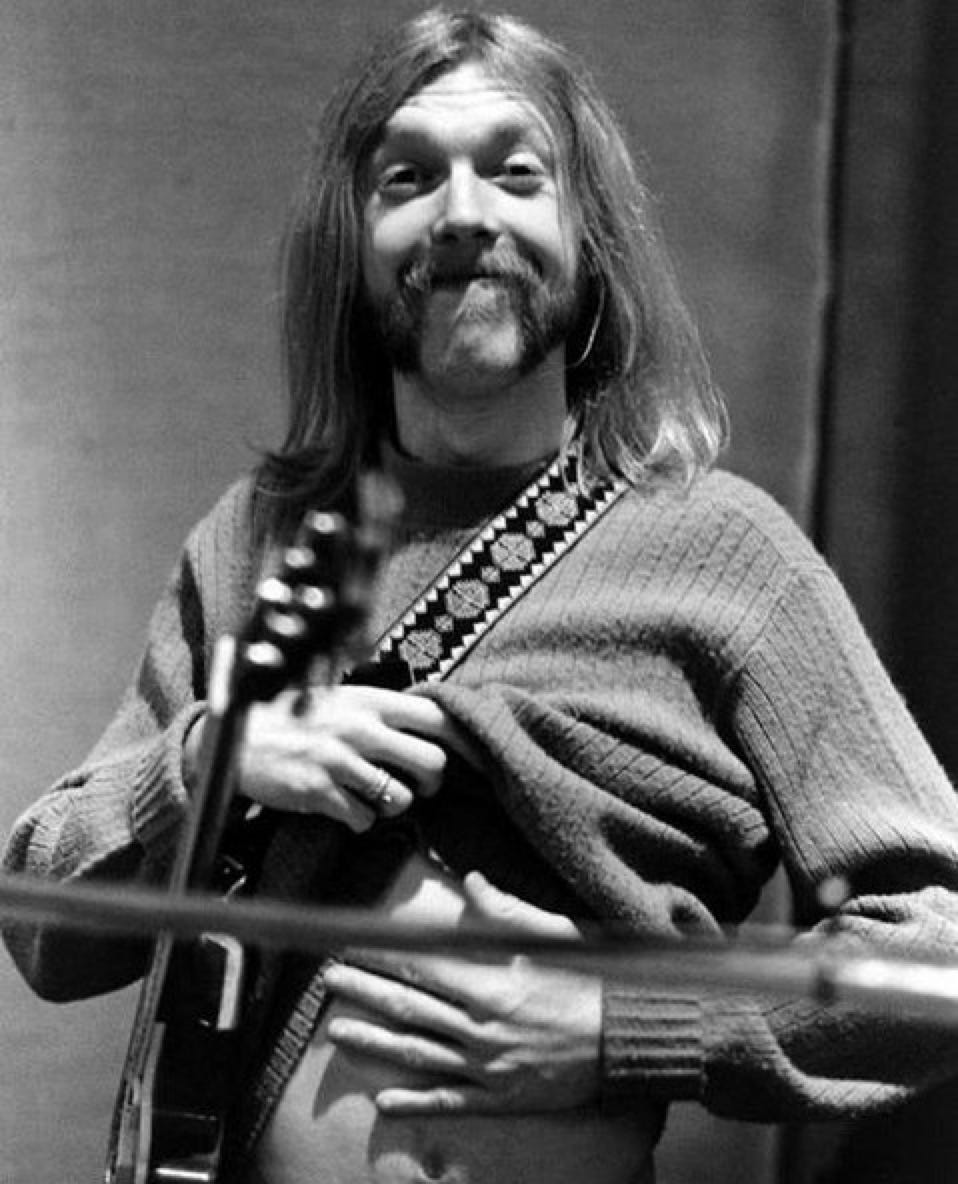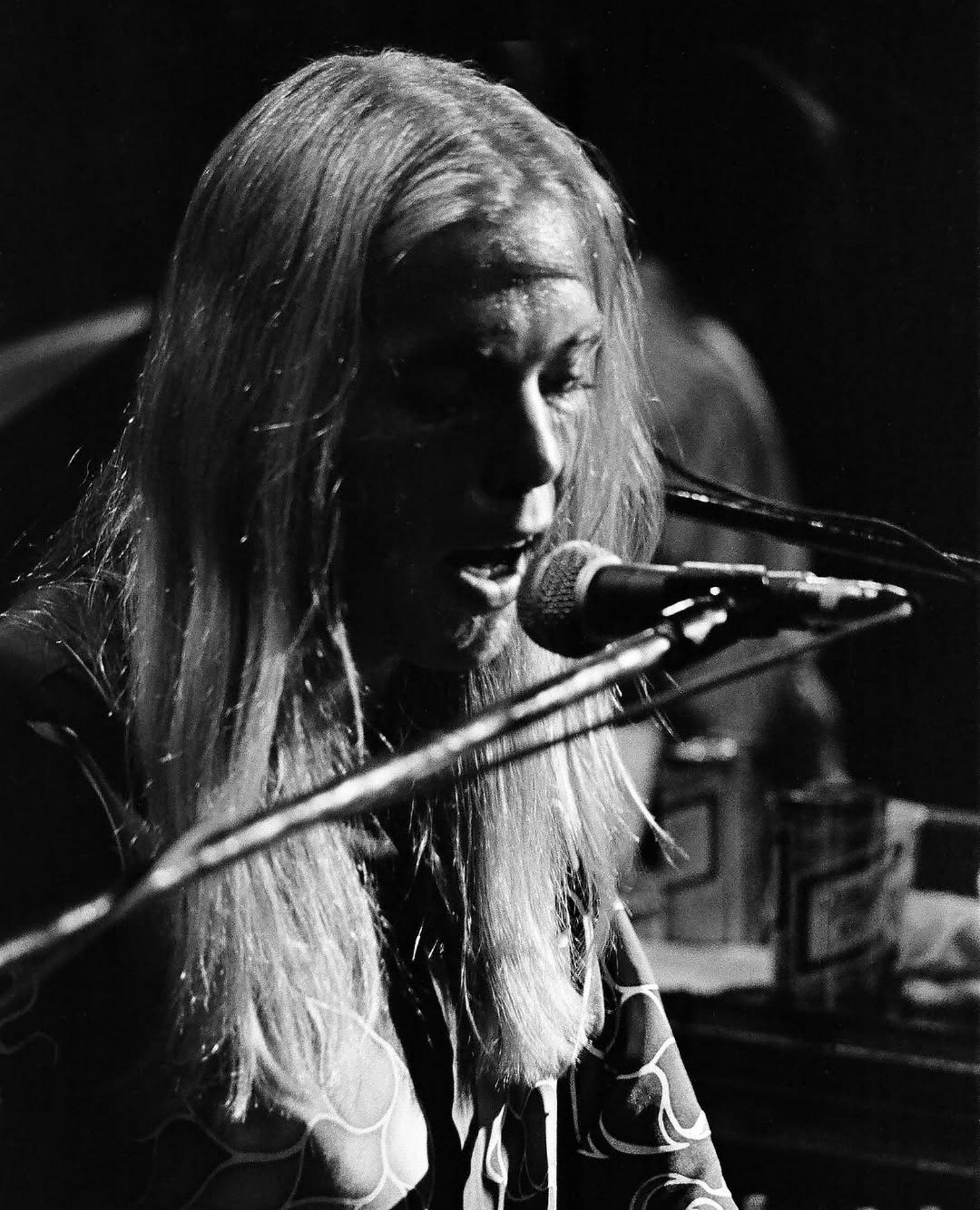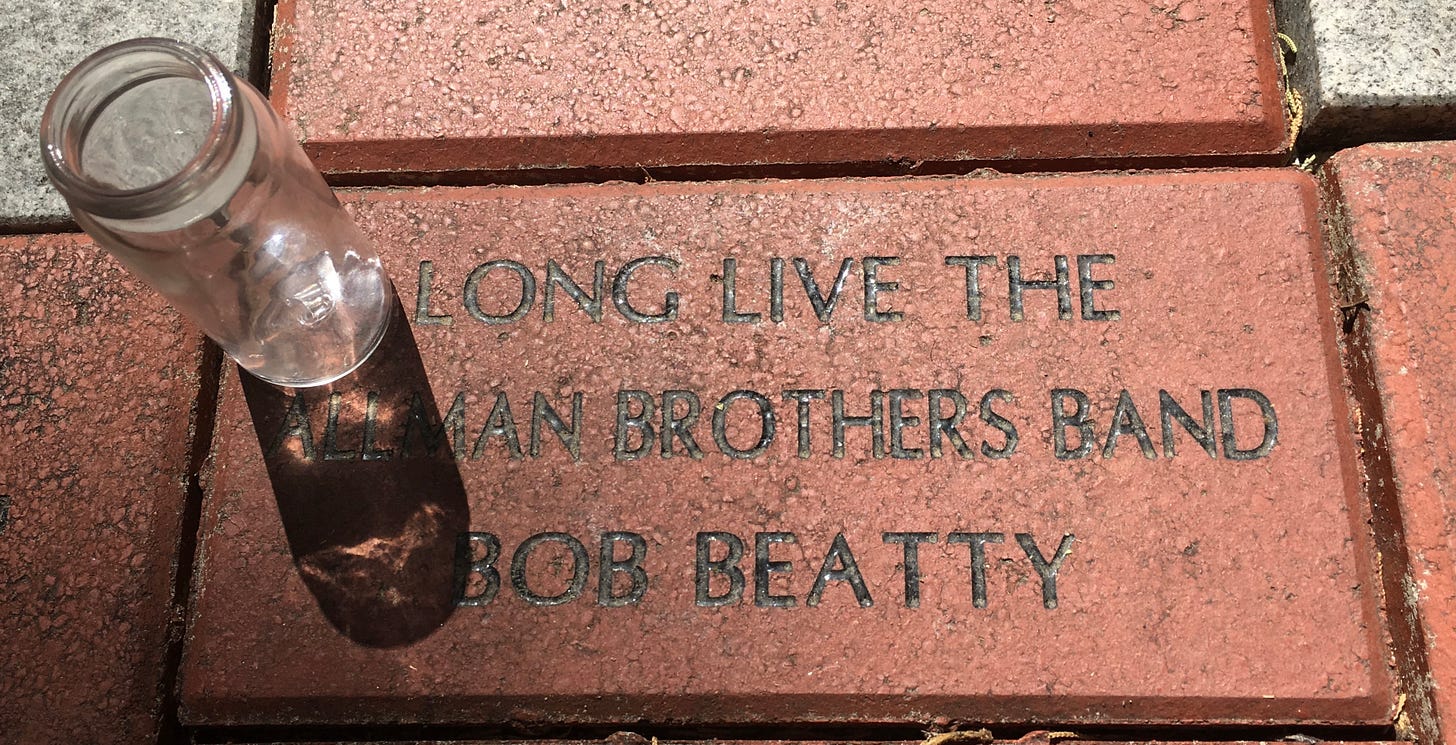"Nothing will ever replace playing for people"
The Allman Brothers on the craft of music
[This is an edit of a post that was previously available only to paid subscribers.]
In honor of Labor Day here in the U.S. (a day of respite in honor of the American labor movement), here is a photo essay/exhibition of the Allman Brothers themselves talking about their approach to music and the life of working musicians.
I’ve got something from each of the original 6, plus quotes from Warren Haynes, Derek Trucks, and Red Dog.
Butch Trucks on the ABB
Outside of Duane Allman himself, Butch may have been the Allman Brothers Band’s biggest fan. He was also their iron man, missing only one gig over their entire 45-year career.
“I think we did come up with a unique way of approaching music, and came up with a synthesis of rock & roll, blues, and country, and added an element of jazz to it in such a way that was unique at the time and has been developed and synthesized by other people since.
That’s our contribution, that’s what I’m most proud of: a unique approach to the art of music.”
MORE: The Freight Train: Butch Trucks as a musical visionary
Berry Oakley
“Being on the road can be a depressing proposition for some people, but for us, nothing will ever replace playing for people.
We're just doing what we like best, man—and making a pretty good living at it as well. That's it right there.”
MORE: BERRY OAKLEY: “We have one big guitar and two little ones. All we need now is a bass player!”
Jaimoe on his partnership with Butch
Jaimoe was the first to sign on with Duane. Butch had known Duane for several years and played with him in the 31st of February in September 1968. Their drum partnership anchored the Allman Brothers Band.
“Duane said, ‘This is my old drummer, Butch Trucks. This is my new drummer, Jai Johanny Johanson.’ That’s how we met. About ten minutes after that, Duane left, and Butch and I was in love from that point on. We didn’t know it yet, but it only took us about a day and a half, two days, and we never left each other’s side.
We were trying to figure out where I would live, and Butch says, ‘Well, you might as well stay with me.’ And I did. A couple days later we took my drums out of the cases and set up in his dining room, and he set his drums up, and the rest of it is history.
People say, ‘Did you practice this? Did you practice that?’ We didn’t practice anything. We do like doctors practice. We practiced what we do. It wasn’t no rehearsal, this or that and the other.
He knew how to play, and I knew how to play, and it was a matter of listening. You have a conversation and you listen to what somebody has to say, and the conversation goes on. You’ve got a part and I’ve got a part. There’s a million things you can play. There’s parts, there’s parts that don’t have to be the same. There’s plenty of stuff there that you can play without playing the very same thing.
We played the way we played; anything you hear, we played like that from day one.”
MORE: JAIMOE “I was with the band when it wasn’t no band.”
Warren on Derek
There are dozens of quotes I could share from Warren about Derek, his guitar partner in the ABB for 13 years. They’ve recently begun playing together a lot more often. Collaborations in 2025 have included Warren’s solo album, two Br🍎thers shows, and TTB/Gov’t Mule tour dates.
“Derek is amazing. I’ve known him since he was eleven years old, and he was amazing even then. He’s got the depth and maturity of someone three times his age. It’s really a special gift he has, and to deal with it the way he’s dealt with it, he’s such a great person.
He’s so down to earth and genuine. I could tell in all the times we’ve been around each other and played together, he’s going to always remain a student of music. That’s what it’s all about, learning. You’re always going to be learning. When you’re eighty years old, you’re still going to be learning. He has such a great attitude about it, and he’ll get up and play with anybody, anywhere, anytime, which is really what it’s all about as well.
I have a deep respect for Derek as a musician and as a person.”
MORE: Warren & Derek: The Br🍎thers NYC
Derek’s approach to soloing
The thing that blew me away when I saw Derek at 12 or 13 in the Junkyard in Casselberry, Florida, was his preternatural calm onstage. He was the best musician there BY FAR, but he was humble and gracious with nothing to prove.
“I’m always of the mindset that a guitar solo needs to be in the spirit of the tune or in the music, and it’s not supposed to completely distract from it. I think maybe from growing up in blues bars and seeing a thousand Stevie Ray Vaughan rip-offs and guitar wankery, I’m scared to ever be that. I try to go out of the way to not do that.
Any time you’re soloing and improvising, especially on the electric guitar, you run the risk of going down that road. I try to be really conscious of that. Playing with Eric, seeing B.B., some of these guys who give you exactly what you need, a lot of times they leave you wanting more.
That’s been a big lesson. I haven’t quite gotten there yet, but I love the fact that when B.B. solos—especially in his prime—when he finishes you’re like, ‘You’re not done. Keep going.’ He kind of withholds it from you; he knows it’s there. So that’s always an inspiration.”
MORE: Quality time with Derek's catalog at Long Live the ABB.
Dickey on “Blue Sky”
I remember how cool it was when I discovered Dickey was singing to an actual person named Bluesky. This is a great shot of Dickey and Sandy Bluesky isn’t it?
“I was married to an Indian woman1 [Sandy] whose last name is Wabegijig, which means “Clear blue sky,” so I was writing it for her and I was writing it as ‘She’s my blue sky, she’s my sunny day.’ And I thought, ‘Nah, this would be a better song if I just sang it to the sky instead of to a woman.’ That was a very good move that could make or break that song. It made it more universal. If you’re a songwriter, that’s not a big jump.
In fact, in ‘Ramblin’ Man,’ the original line to that was ‘Playing my music and doing the best I can.’ Everybody doesn’t play music, but everybody works for a living.”
MORE: To Dickey Betts, with gratitude.
Red Dog on Duane
Next to Butch, Red Dog might’ve been Duane’s greatest devotee.
“He was like the Pied Piper. I didn’t even know how to listen to music back in those days. I danced a lot, but music just took up space in the room. But from the minute I heard Duane Allman play, my ears just opened up.
I heard him on ‘The Weight.’ Of course, I didn’t even know that was him. It was just a lick with Duane playing slide, and I just loved the way that sounded. Then I heard him play live and it just opened my ears up even further.
His charisma and straightforwardness would just reach out and grab you and suck you right into him.”
MORE: SKYDOG “You gotta strive to play a kind of music that’s honest to yourself.”
Gregg on songwriting
I’ll leave y’all with this gem from Gregg, a tremendous songwriter, though not very prolific after Duane’s death.
“There’s no doubt that growing up in the South influences my music. I’m a Southern boy, and I always will be.
I’ve always said that there are as many ways to write a song as there are songs, and they can just as easily be based upon what someone else is going through in their life; they don’t always have to come from your experiences.
You don’t have to be sad to write a blues song, but there have been occasions where some of my rough times have inspired me to write songs like ‘Whipping Post,’ ‘Dreams,’ ‘Just Ain’t Easy,’ and ‘Demons.’ But for every one of them, you have a ‘Multicolored Lady’ or a ‘Queen of Hearts,’ so it works both ways.
Using open E, I wrote ‘Melissa,’ which was the first song I wrote and actually kept. After that, I really got into open tuning, and eventually I developed my own style. ‘Midnight Rider’—which is the song that I’m most proud of in my career – was written on open G, as was ‘Come and Go Blues.’ Now, two of my very favorite songs – ‘Please Call Home’ and ‘Oncoming Traffic’—were written on the piano, so I’ve had some good luck with both instruments.”
MORE: GREGG “I need you to round it all up and send it in some sort of direction.”
Until next time…
Sandy is Wiikwemkoong First Nation.



